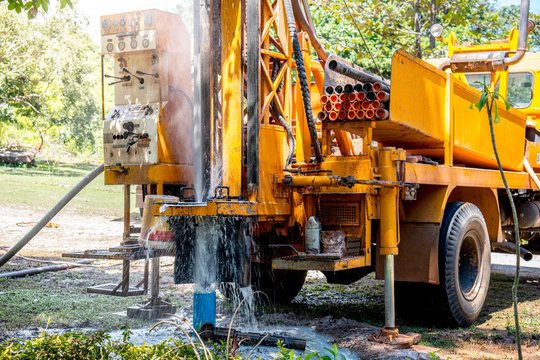Hygiene and Hydration Solutions: Innovations in Water Well Drilling and Portable Restrooms

In today’s world, access to clean water and sanitary facilities is crucial for public health and well-being. Innovations in water well drilling and portable restrooms play a pivotal role in addressing these fundamental needs, providing communities and events with essential resources that ensure hygiene and hydration.
The Importance of Water Well Drilling
Ensuring Sustainable Water Access
Water well drilling is a cornerstone of sustainable water management, particularly in areas where access to clean water is limited. By drilling deep into the earth’s crust, hydrogeologists can tap into underground aquifers, providing communities with a reliable source of fresh water. This process not only meets immediate water needs but also contributes to long-term water security.
Technological Advancements in Water Well Drilling
Recent advancements in drilling technology have significantly improved the efficiency and effectiveness of water well installations. Modern drilling rigs equipped with advanced sensors and computerized controls can precisely target aquifers, maximizing water yield while minimizing environmental impact. This ensures that communities receive ample water without depleting natural resources or causing undue harm to ecosystems.
Case Study: Sustainable Water Solutions
In rural communities across the globe, water well drilling has transformed lives by providing access to clean water. For instance, in Sub-Saharan Africa, nonprofit organizations leverage advanced drilling techniques to establish community-owned wells, empowering locals with a sustainable water source. This not only improves health outcomes by reducing waterborne diseases but also enhances economic opportunities as communities can allocate more time to productive activities instead of fetching water from distant sources.
Enhancing Hygiene through Portable Restrooms
Meeting Sanitary Needs at Events
Portable restrooms play a crucial role in ensuring hygiene standards at public events, construction sites, and disaster relief efforts. These mobile facilities offer convenient access to toilets and handwashing stations, promoting sanitation practices that prevent the spread of diseases. Whether at music festivals or construction projects, portable restrooms are indispensable in maintaining public health and comfort.
Innovative Designs and Features
Advancements in portable restroom technology have led to the development of units equipped with eco-friendly features such as water-saving fixtures and solar-powered lighting. These innovations not only reduce environmental impact but also enhance user experience by providing clean, well-maintained facilities. Moreover, some portable restroom models are designed to be wheelchair-accessible, ensuring inclusivity and accessibility for all individuals.
Case Study: Disaster Relief Efforts
During natural disasters such as hurricanes or earthquakes, access to basic amenities like toilets becomes critically scarce. Portable restroom providers swiftly deploy units to affected areas, supporting relief efforts by maintaining hygiene standards for displaced individuals. These facilities are essential for preserving dignity and preventing the outbreak of sanitation-related illnesses in vulnerable populations.
The Intersection of Water Well Drilling and Portable Restrooms
Synergies in Community Development
The synergy between water well drilling and portable restrooms becomes evident in community development projects. For example, in remote regions where water wells are drilled to provide clean water, portable restrooms complement these efforts by ensuring proper sanitation infrastructure. This holistic approach addresses both hydration and hygiene needs, laying the foundation for healthier and more resilient communities.
Environmental Considerations
Both water well drilling and portable restroom services emphasize environmental stewardship. Companies engaged in these sectors adhere to rigorous environmental regulations, employing sustainable practices to minimize ecological footprint. This commitment extends from responsible drilling practices that safeguard groundwater quality to the use of biodegradable materials in portable restroom maintenance.
Conclusion
In conclusion, innovations in water well drilling and portable restrooms represent crucial advancements in meeting the global challenges of water access and sanitation. These technologies not only provide communities with essential resources for hygiene and hydration but also contribute to sustainable development goals by promoting environmental stewardship and community resilience. By harnessing technological advancements and adopting responsible practices, stakeholders in these sectors continue to make significant strides towards a more equitable and sanitary world.






